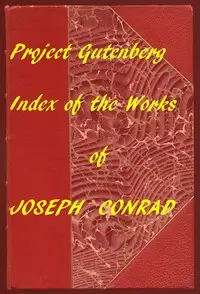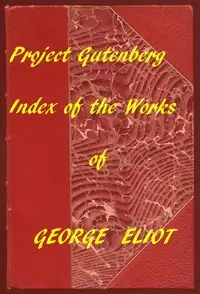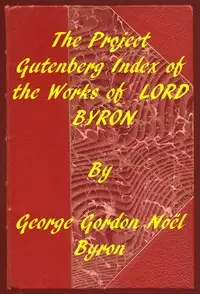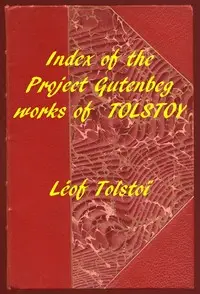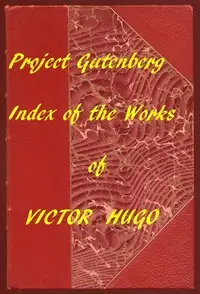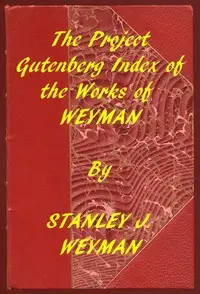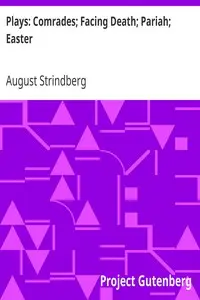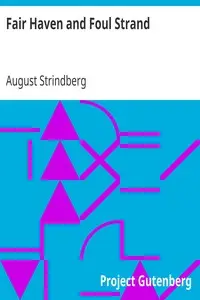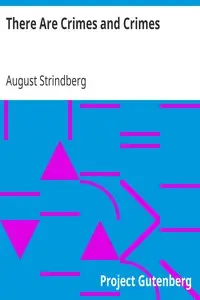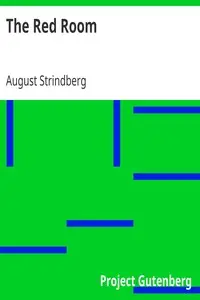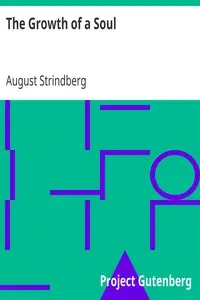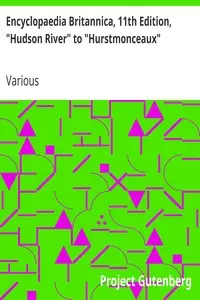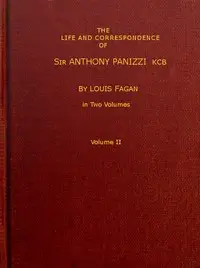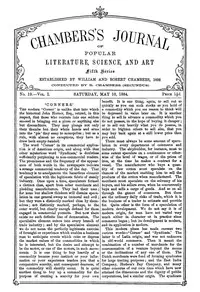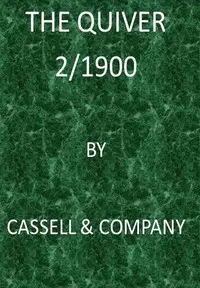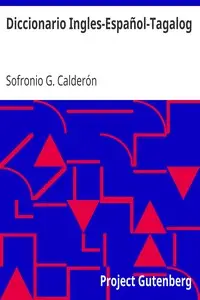"Index of the Project Gutenberg Works of August Strindberg" by August Strindberg is a detailed guide to the author's writings, created to help people find and understand his many works. It covers different types of writing, like plays, stories, and personal accounts, and was probably put together in the early 2000s to make his work easier to reach. The book lists the many subjects Strindberg wrote about, like how people think and act, how society works, and big questions about life. The index organizes Strindberg's exploration of what it means to be human through important pieces like "The Red Room," which makes fun of how society is set up, and "Married," which talks about the challenges of relationships. It includes summaries of plays like "Countess Julie" and different writings and life stories that show how his writing changed over time. Overall, the index is really useful for anyone wanting to explore the complex subjects and many different styles in Strindberg's writing, emphasizing his impact on modern writing and his examination of personal and philosophical problems.
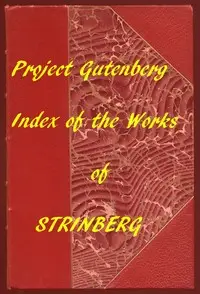
Index of the Project Gutenberg Works of August Strindberg
By August Strindberg
This resource unveils a literary landscape filled with social critiques, relationship complexities, and introspective explorations.
Summary
About the AuthorJohan August Strindberg was a Swedish playwright, novelist, poet, essayist, and painter. A prolific writer who often drew directly on his personal experience, Strindberg wrote more than 60 plays and more than 30 works of fiction, autobiography, history, cultural analysis, and politics during his career, which spanned four decades. A bold experimenter and iconoclast throughout his life, he explored a wide range of dramatic methods and purposes, from naturalistic tragedy, monodrama, and historical plays to his anticipations of expressionist and surrealist dramatic techniques. From his earliest work, Strindberg developed innovative forms of dramatic action, language, and visual composition. He is considered the "father" of modern Swedish literature and his The Red Room (1879) has frequently been described as the first modern Swedish novel. In Sweden, Strindberg is known as an essayist, painter, poet, and especially novelist and playwright, but in other countries he is known mostly as a playwright.
Johan August Strindberg was a Swedish playwright, novelist, poet, essayist, and painter. A prolific writer who often drew directly on his personal experience, Strindberg wrote more than 60 plays and more than 30 works of fiction, autobiography, history, cultural analysis, and politics during his career, which spanned four decades. A bold experimenter and iconoclast throughout his life, he explored a wide range of dramatic methods and purposes, from naturalistic tragedy, monodrama, and historical plays to his anticipations of expressionist and surrealist dramatic techniques. From his earliest work, Strindberg developed innovative forms of dramatic action, language, and visual composition. He is considered the "father" of modern Swedish literature and his The Red Room (1879) has frequently been described as the first modern Swedish novel. In Sweden, Strindberg is known as an essayist, painter, poet, and especially novelist and playwright, but in other countries he is known mostly as a playwright.


